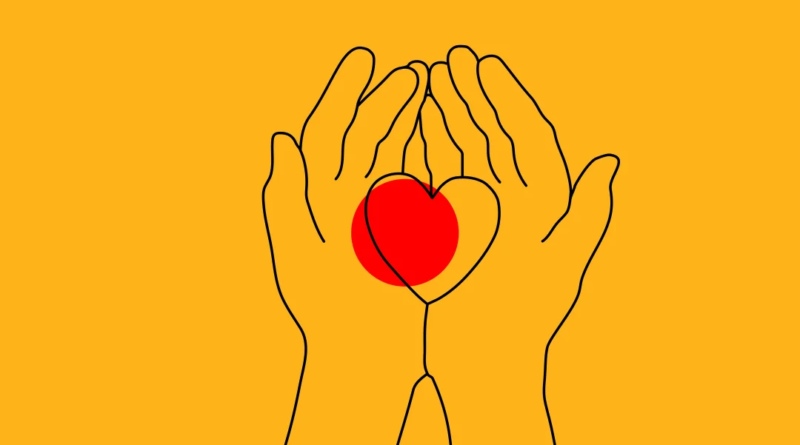Living With a Gratitude Attitude
It was a week before our annual Pesach Seder, and we had decided to rent a hotel for the event. However, the establishment was demanding full payment within the next forty-eight hours.
Our account balance showed that we only had a quarter of the necessary funds. To say it was a tense time, was an understatement.
We had anticipated that fundraising would be more difficult this year, due to the negative effect that Covid-19 had on the economy. Still, we never imagined that it would be this difficult.
I made it a priority to focus all my efforts on the bigger donors with the largest contributions (who had always come through year after year).
However, I was hitting a brick wall, since even they were hesitant about making any contribution, or only agreeing to give a fraction of what they had given in the past.
There was one donor on the list, whose name I did not recognize from the past.
I asked the other volunteers if anyone had known or recognized the name, but no one seemed to know anything about this mystery past donor.
I tried calling this mysterious donor several times for a week straight but to no avail. All we had was a phone number, name, and the amount of a one-time donation made in the past.
Time was ticking by and the financial pressure was building up like a ferocious volcano. I decided that I would add her name to my contacts and send her a WhatsApp message…
My first message was short and friendly, asking her if this was still her number.
A few hours later, to my surprise, I received an affirmative confirmation.
From the wording of her response, I could also tell that I had piqued her interest, however, she was probably playing it safe waiting to decide if she wanted to continue communicating with me.
It was now 6:00 am in Israel and the middle of the night for the area code I was corresponding with.
I decided that I would complete my morning prayers and by then I would hopefully have an idea of what I would say to her.
In my morning prayers, I got up to the section of הודו which means to recognize, admit and give thanks to the Divine.
I decided to meditate on this section a bit more than usual.
I concentrated on the reason our great sages placed it in the early stages of the service.
Remembering that before one can ask for more abundance from the Divine, he must first meditate on the abundance that he has already received.
One should admit that He is the source of all the good there is in this world and we should be truly grateful for all of the blessings in one’s life.
After prayers and breakfast, I returned to my phone and reread our correspondence.
I then thought to myself, if no one remembers this person’s name that means that no one ever thanked her properly for her previous donation.
I did not have the impertinence to ask her again to make another contribution if she was never properly thanked the last time.
So, I decided to focus my message on my sincerest apologies, for never properly thanking her for her past donation and expressing a deep and sincere appreciation for her past involvement and partnership in our project for the widows and orphans.
I once again made a point to not ask her for a new donation.
A few minutes later I received a positive response thanking me for my sincere words and asking me for wire instructions in order to make a donation.
The next morning at 10:37 Israel time I received a WhatsApp message from the donor. She thanked my wife and me for the opportunity to partner in this special cause.
I could not believe my eyes when I saw the amount of money that she was donating!
Her donation was nearly ten times more than her previous contribution!
This week in the Omer calendar is the week of Hod.
This character is the trait of healthy humility. If endurance is the engine of life, Humility is its fuel.
Humility is the silent partner of endurance. Its strength is in its silence. Humility leads to yielding, which is an essential element of Humility and the resulting yielding should not be confused with weakness or lack of self-esteem.
Humility is modesty; it is acknowledgment. It is saying thank you to G-d. It is recognizing how small you are which allows you to realize how large you can become. And that makes Humility so formidable.
Humility is sensitivity; it is healthy shame out of a recognition that you can be better than you are and that you expect more of yourself.
One must be very careful not to confuse low self-esteem with healthy humility.
Dov Ber ben Avraham of Mezeritch, also known as the Maggid of Mezritch was a disciple of Rabbi Israel ben Eliezer (the Baal Shem Tov,) the founder of Hasidic Judaism, and was chosen as his successor to lead the early movement.
He explains that the proper way to obtain healthy humility is by meditating on the greatness of the Divine. How He infuses all of the upper worlds and lower worlds constantly with life.
Constant recognition of His absolute infinite greatness will bring one to healthy humility.
Recognizing, admitting, and properly thanking HaShem for all of his abundance, causes springs to open for both spiritual and physical abundance in one’s life.

Have a wonderful Shabbos!
Yitzchok Friedman




